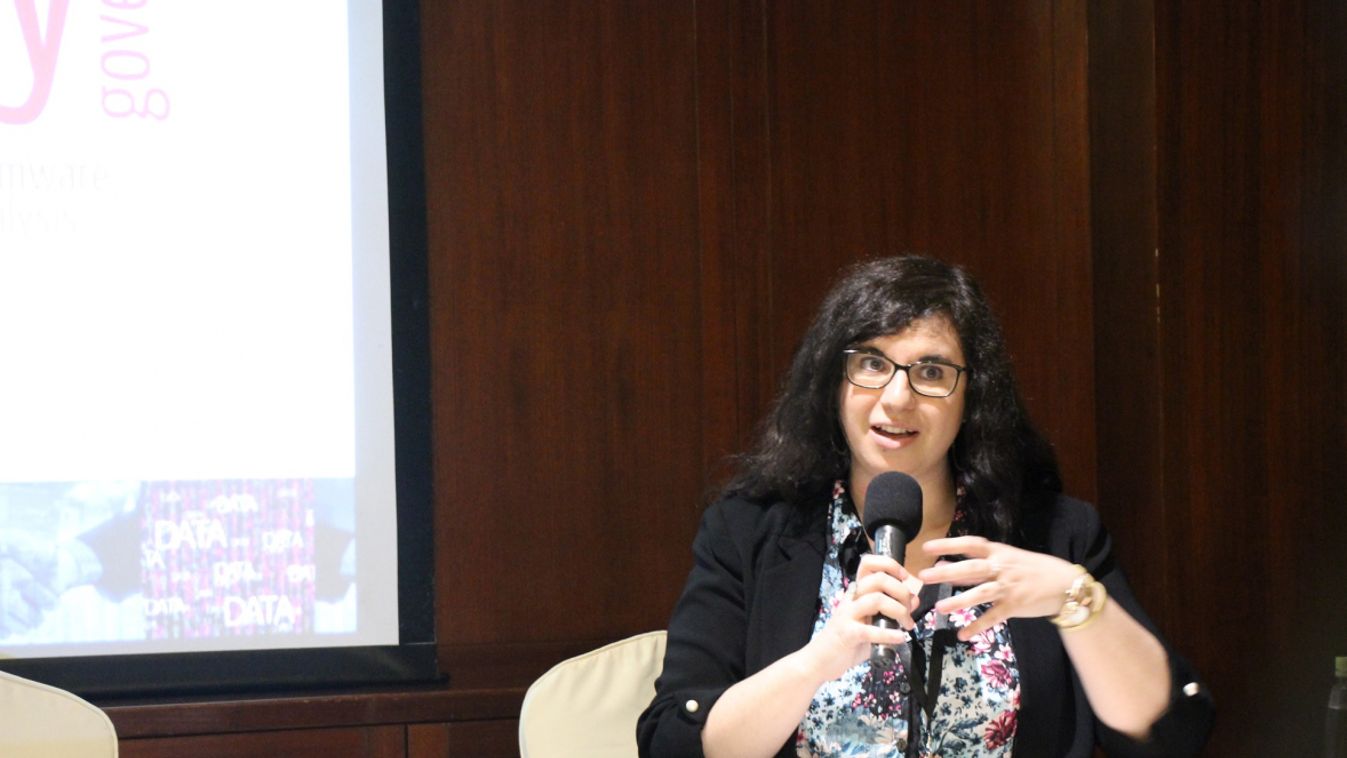Komoly gonddal küzd a Moderna-vakcina gyártója

A COVID-19 vakcinák iránti csökkenő globális kereslet irányváltásra kényszeríti a céget.

“With the COVID-19 pandemic we are witnessing not only a public health emergency, but also an economic and social emergency situation; I think all the requirements for a successful invocation of a state of necessity can be invoked” – pointed out by Federica Cristani, Jean Monnet Visiting Lecturer at the V.N. Karazin Kharkiv National University (Ukraine).

You are researcher of international public law and you have taught and researched in many places and universities, including the Pázmány Peter Catholic University and the Hungarian Academy of Sciences in Budapest. Nowadays, however, you are staying in your hometown, Verona that has been hit hard by the coronavirus. How did life change and what in your view are the biggest challenges in the midst public health crises?
Thank you very much for having reached me out for this interview. Yes, currently I am in Verona, in the Veneto Region of Italy, which, as many other countries in Europe and around the world, is under lockdown. For sure, it is a big change and challenge for everyone, primarily from an emotional point of view, since we are witnessing everyday the development of this global health crisis and its human costs everywhere.
Also when the period of the pick health emergency will be over, and we hope as soon as possible, it is very likely that we have to keep some precautionary measures, and some restrictions will remain, maybe for some months; this will certainly affect our personal and professional lives, the way we maintain our personal relations and we go on with our work, with more and more dependency on technological devices and internet-based activities. In this respect, it remains to be seen whether everyone will be able to afford such devices, and for sure governments will be faced with such (and many other) problems, in order to avoid enhancing social differences among the population. Furthermore, as we are seeing, the COVID-19 pandemic is not only a public health crisis, but also an economic and social crisis.
European and non-European countries are both going to face financial-economic and other hardships due to the coronavirus pandemic. In order to protect the life and health of their population, they are forced to introduce measures as social distancing, quarantines and even state control of certain strategic companies. At the same time, they continue to have various international legal obligations such as investment obligations. What might be the relevant principles of international law that can relieve the international responsibilities of states? Is it an unusual situation in the eyes of international law?
The COVID-19 pandemic is something very new; a health/economic/social crisis of this kind is not comparable to anything occurred so far in modern history – given the fact that it is affecting not only a few number of countries or some particular regions, but it is global in its diffusion and global are/will be its effects.
Most countries have declared national state of emergencies within their territories (in Italy it happened on 31 January 2020, immediately after the World Health Organization’s declaration that the COVID-19 pandemic constituted a public health emergency of international concern), and are adopting restrictive measures on the ground of exceptional circumstances. Such measures are affecting not only individual and collective rights (freedom of movement, right to association, even freedom of expression, just to name a very few of them), but they also have a great impact on international trade and investment.
As regards in particular measures affecting foreign investors, I can briefly refer to what is happening in Italy: the government has strengthened the screening mechanism for incoming foreign investors and it is foreseen that the so-called golden power mechanism will be introduced in order to limit the risk of external hostile takeovers of national businesses. Italy is not the only country adopting this kind of measures, and foreign investors may be likely to question the breach of international investment obligations by host states, claiming that the national measures constitute a breach of the non discrimination principle (favoring national companies), the fair and equitable treatment, or amount to indirect expropriation.
International investment law already envisages some instruments of defence that can be used by states in these circumstances: 1) international investment treaties generally include non-precluded measures clauses, which allow the state to adopt, under exceptional circumstances measures to protect public order or its essential (economic) interests; and/or 2) defences under customary international law: most notably, the state of necessity and/or force majeure, as codified by the International Law Commission in the Draft Articles on State Responsibility.
Moreover, it has been already proposed (as regards measures taken during the 2008-2009 financial and economic crisis) that treaty obligations might be temporarily suspended during the crisis, as a consequence of article 62 of Vienna Convention on the Law of Treaties, according to which a “fundamental change of circumstances” may justify the termination/withdrawal/suspension of the treaty when “the effect of the change is radically to transform the extent of obligations” – e.g a state might claim an essential necessity to privilege primarily domestic investors due to the severe national economic situation.
So, international (investment) law offers the instruments for states to relieve their international responsibilities towards foreign investors when facing exceptional circumstances. However, these instruments have been designed in order to face short-term emergencies; as we are in a situation that is likely to last in the medium- long- term, I wonder whether there will be a re-shaping of international obligations of states, with a re-discussion of the balances of (sovereign) rights and obligations on the grounds of a long-term state of emergency.
You wrote your doctoral thesis on the necessity defense in international investment law in times of economic distress. The bankrupt Argentina made this argument before international arbitral forums, though unsuccessfully. How do you see the current situation? Does this pandemic give rise to a necessity?
The investment law cases Argentina had to face came after the 2001 financial crisis that seriously hit the country; more than 40 cases were brought before investment arbitral tribunals. Claimants (for the most part US investors) alleged that the Argentine’s regulatory measures adopted to cope with the financial crisis had breached a number of international obligations. When Argentina invoked the necessity defence to justify the alleged violations, arbitral tribunals did not deal with the necessity defence in the same way and this situation led to inconsistent decisions. In particular, when dismissing the Argentina’s arguments, most arbitral tribunals stated that the country somehow contributed to the situation of economic emergency, because of previous bad decisions taken at the governmental level; accordingly, arbitrators did not agree that Argentina could claim a state of emergency – however, most of the arbitral decisions agreed that in principle a grave economic crisis, likely to undermine the social structure of a state, may amount to a situation of necessity.
With the COVID-19 pandemic we are witnessing not only a public health emergency, but also an economic and social emergency situation; I think all the requirements for a successful invocation of a state of necessity can be invoked.
Does in your view international investment law provide an adequate framework to deal with this ongoing pandemic? Where are the weak points that need to be rethinking based on the experience of this crisis?
This is a very crucial question, and it implies a rethinking of international investment law structure and its application. International investment law provides a range of instruments that can be used during emergency situations; they are meant to be used as a justification for states for not complying with international obligation because of a grave situation undermining essential interests of the states. However, they have been drafted with an idea to be temporary in their application.
If the state of emergency is likely to persist in the medium- long-term, we should rethink how we want to reshape international obligations of states towards foreign investors. As the COVID-19 pandemic is changing our lives and daily routine, is also changing legal relationships and it is likely that international obligations will be re-read through the new lenses of emergency.
One of the major lessons of the current public health crises is that they are still the nation states and national communities that represent the first bastion of defense. However, we are witnessing exceptional cooperation among European nations: the German air force is helping Italy to ease the stress on their hospitals by transporting patients to Germany. What are the major lessons to be learned from this pandemic for the European cooperation?
This is maybe the most important questions all lawyers will have to answer, now and once the pandemic will be over.
I guess the most important lesson is that the European Union works well when there is solidarity among member states. And solidarity should be intended not only in social terms, but also in economic terms. And I think that, even though we witness different positions on this point among member states, there is a common understanding that the European Union is necessary for coping with this situation. Let’s hope this will be a first step towards a rethinking of the future of Europe and the European social and economic structures in a more solidaristic way.











